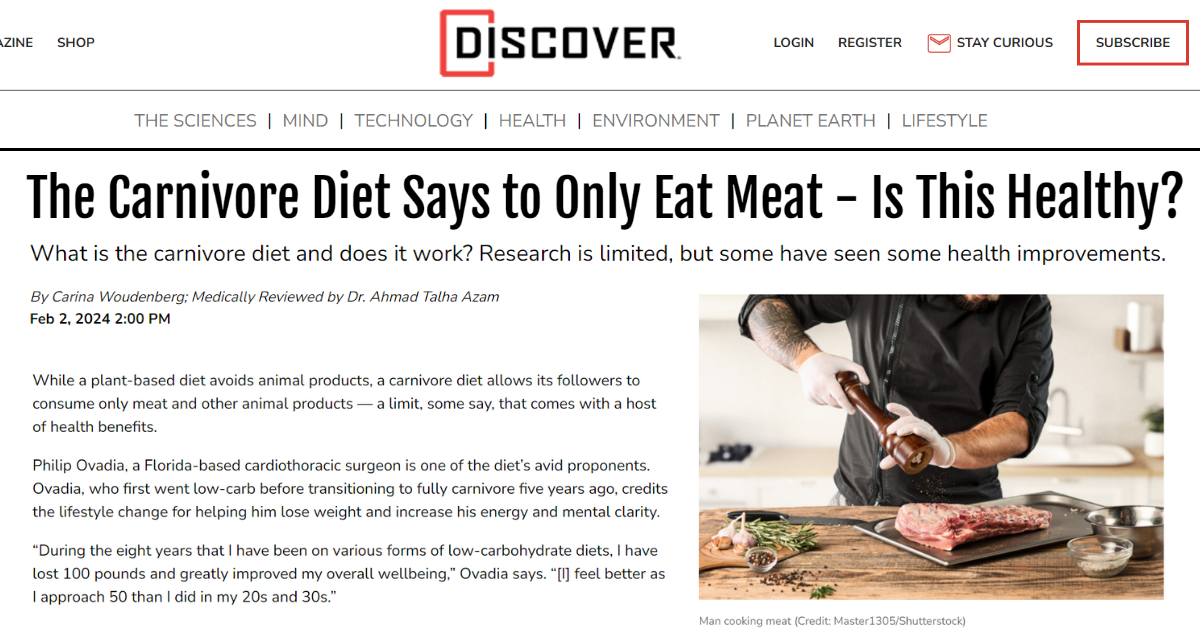"Stay Off My Operating Table®" Author: I have lost 100 pounds and greatly improved my overall wellbeing. I feel better as I approach 50 than I did in my 20s and 30s.”
Dr. Phil Ovadia, a noted cardiothoracic surgeon based in Florida, has recently been featured in Discover Magazine for his remarkable health transformation and advocacy of the carnivore diet. In an enlightening article, Dr. Ovadia shares his personal journey and insights on this unique dietary approach, demonstrating its potential benefits for weight loss, energy, and overall wellbeing.
Dr. Ovadia's Personal Health Transformation
Five years ago, Dr. Ovadia transitioned to a carnivore diet after initially adopting a low-carb lifestyle. This change has been nothing short of transformative for him. "During the eight years that I have been on various forms of low-carbohydrate diets, I have lost 100 pounds and greatly improved my overall wellbeing," Dr. Ovadia states. He shares that he feels better approaching 50 than he did in his 20s and 30s.
Understanding the Carnivore Diet
The carnivore diet, which gained popularity around 2018, involves consuming only meat and other animal products, eliminating carbohydrates completely. This approach aligns with the belief that humans are naturally predisposed to a predatory diet, similar to that of early ancestors. Dr. Ovadia highlights the diet's potential to improve or even reverse various health conditions, including diabetes, auto-immune disorders, and inflammatory bowel disease.
Although research on the carnivore diet is still emerging, initial studies, like one in 2021 involving over 2000 participants, show promising results, particularly regarding diabetes management and weight loss. Dr. Ovadia's own experience corroborates these findings, showcasing significant personal health improvements.
Addressing Concerns and Misconceptions
The carnivore diet, while beneficial for many, contradicts long-standing dietary guidelines that advocate for a varied diet. Critics point out potential nutritional deficiencies and the absence of fiber. Christopher Gardner, director of nutrition studies at the Stanford Prevention Research Center is quoted in the article saying, “There aren't any carbs there, there isn’t any fiber […] and there’s lots of vitamins and minerals that you get from fruits, grains, beans, nuts, seeds that you wouldn’t be able to get and meet the recommended daily allowance.”
Dr. Ovadia Responds
However, Dr. Ovadia counters these concerns by referencing studies that downplay the risks associated with red meat consumption and the necessity of fiber. He has also provided additional information and context in a video response (below) he recorded after publication of the article.

